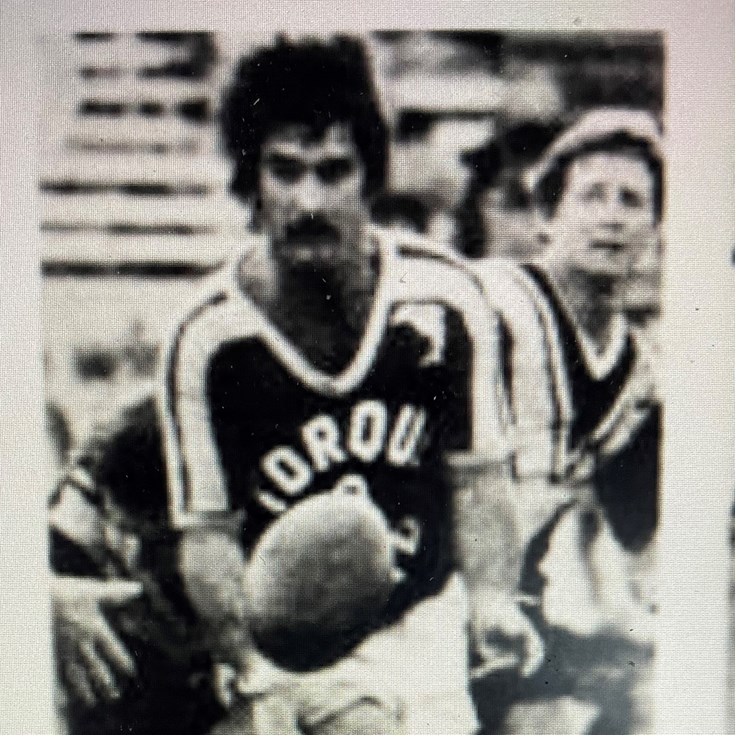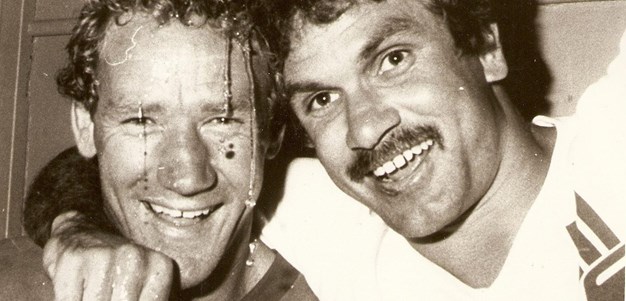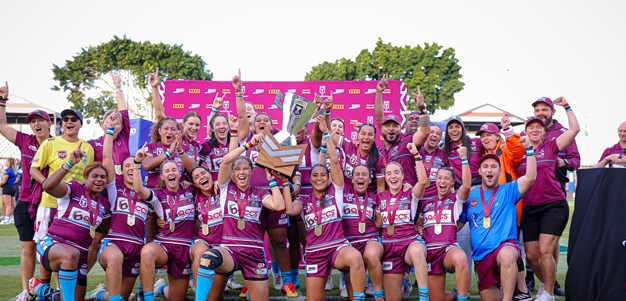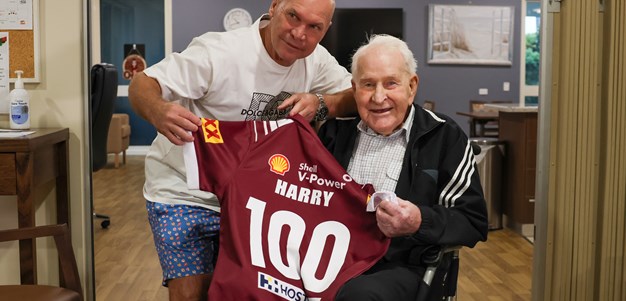
Ipswich rugby league star, Colin 'Curly' Quinn played centre in a famous Queensland victory over a formidable Great Britain side, in 1950.
Britain had come to Australia as holder of rugby league's 'Ashes Trophy', following series wins over the Kangaroos in 1946 and 1948-1949. They had started the 1950 Test series with a win in Sydney, with team management then setting a target of going through the tour undefeated.
Queensland, coming off a 9-9 draw with New South Wales, had other ideas, with the Maroons winning 15-14 at the Gabba, in one of the toughest representative matches played in Brisbane.
Quinn more than held his own with his British counterparts, and was retained for the next interstate clash with New South Wales, while his co-centre, Noel Hazzard was dropped.
The 1950 season was the pinnacle of Quinn's career, with the then 21-year-old playing all three interstate matches, as well as the clash with the Lions.
Quinn died on July 10, 2022, his life celebrated at a funeral at Sacred Heart Catholic Church, Booval on July 20.
One of his eight children, Greg delivered the eulogy, which was appropriate, given Greg also represented Queensland - in 1979 - from Brisbane Brothers, where he moved with his father's blessing, after making his first grade debut for Ipswich Brothers.

Colin Quinn, the youngest of five children, grew up at Booval, near the butter factory, and attended Sacred Heart Primary School and then St Mary's (now St Edmunds), although he also had one year at boarding school at Warwick, during World War II, as fears grew of Japanese bombing raids on the air force base at Amberley and rail yards and factories in Ipswich.
Quinn worked briefly as a metal worker's apprentice in the rail yards, before being transferred to the office as a clerk, in Queensland Rail, where he stayed for 45 years, spending the last 15 as an auditor, travelling around the state.
He played rugby league for Brothers (or CYMS, as the club was known then), representing Ipswich in the (inter-city) Bulimba Cup, against Brisbane and Toowoomba.
After his Queensland heroics, Quinn continued to play club football in Ipswich, but retired, aged 24, to focus on his family. He also devoted himself to sports associated with his children, including athletics, basketball, swimming and rugby league. He was awarded life membership of Brothers Club, where he was a selector at one stage.
The Courier-Mail's Jack Reardon covered the 9-9 draw between Queensland and NSW, at the SCG in 1950 and had this to say about Quinn and co-centre, Viv Irwin.
"They could not be in the attacking picture under the (heavy) conditions, but they did a good job in defence, in keeping Johnny Hawke and Doug McRitchie in check."
Described by noted journalist, Neil Groom as a "bold, bustling centre," Quinn's defence was his strong point, at representative level.
When Britain played Ipswich in 1950, they had to fight every step of the way for a 18-13 win, with the tourists' frustration with the stern local resistance, illustrated by the dismissal of Welsh forward, Elwyn Gwyther, for kicking Quinn in the head.
"The Britishers were countered by glorious tackling, not only by the Ipswich forwards, but by the whole of the green jersey backline," wrote L H Kearney in The Courier-Mail.
Two weeks later, Quinn scored a crucial try for Ipswich in a memorable 17-13 win over North Queensland, after the northerners led 13-2 at halftime.
Colin Gilmore Quinn was a respected footballer and a much-loved family man. As well as being father to eight children, he had 18 grandchildren and 19 great grandchildren.
"'Curly' had this uncanny way of making everybody feel like they were his personal favourite, and they were," said his son, Greg during the eulogy.
Main image: Colin ‘Curly’ Quinn is the third player from the left in this photo of members of the 1950 Queensland side. The other players are Ron Griffiths, Brian Davies and captain, Billy Thompson. Coach and manager, Fred Gilbert is also pictured.




